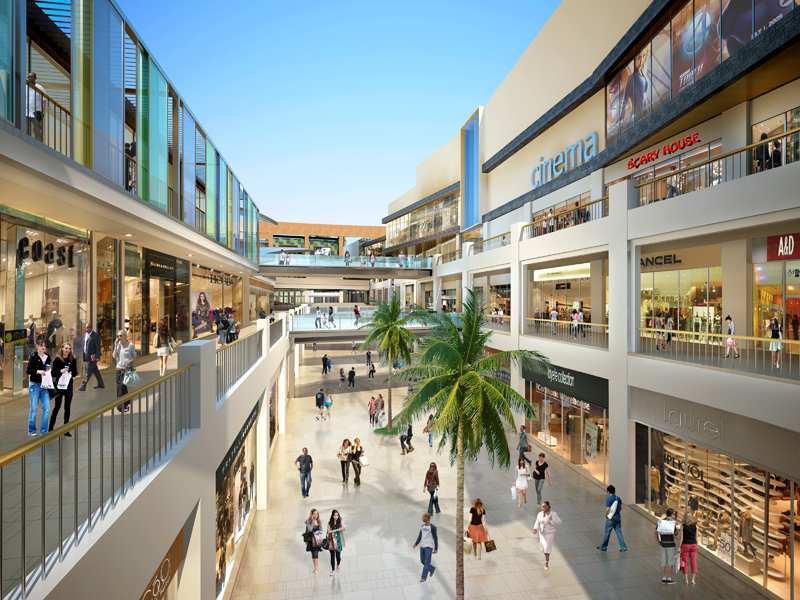Developers Speak
Malls & High Streets: Two to co-exist


Post-pandemic India has witnessed many shifts. But more than anything it had led to a debate, both on the immediate aftereffects and the long-term impact on the retail industry. As things return to normalcy, consumer behaviour in most cases has proved the doomsayer wrong.


“If we look at the global trends in any city, malls emerge as grand entertainment and shopping destinations with everything under one roof- F&B, retail, cinemas, leisure and family entertainment activities whereas high-street retails serve as neighbourhood convenience shopping centres,” says Nayan Raheja, Raheja Developers. “Both formats have different purposes and advantages. They both have always and shall always continue to co-exist together.”


“One of the most recent developments has been the priority being given to the development of high streets as shopping promenades,” says Rajat Mehta, Director, ElitePRO. “An idea similar to Connaught Place, developers are bringing down old structures and developing something which caters to the needs of the modern shoppers while still being a high street.”
High Streets had always existed. Much before the onset of malls, it was your friendly neighbourhood complex of shops. One of the most popular examples would be Connaught Place or Khan Market. However, what makes most of the high street tick is the low construction cost, low maintenance cost and low rental.


According to Uddhav Poddar, MD, Bhumika Group, “As we are seeing post the pandemic, shopping malls are back in business and delivering fantastic numbers. Hence malls and high streets will continue to exist in peaceful harmony fulfilling the consumer’s different needs. A high street caters to the daily and everyday needs of the shopper whereas,shopping mall is a place where the shopper goes for a holistic shopping, entertainment experience.”
“Instead of pitting one against the another we need to understand the needs the malls and high streets fulfil,” explains Ajendra Singh, VP, Sales and Marketing, Spectrum Metro. “High streets serve primarily utilitarian functions. These are the kind of places you park your car, move inside a shop, get the thing you need and move out. On the other hand, malls combine shopping with leisure. It’s a place you don’t just visit to shop but you can also spend some time with your family strolling from one shop to another, watching a movie, enjoying the various delicacies at the food court and doing a host of other things that malls offer.”


“For the shop owners looking for low investment options, it is much more profitable to run their businesses in a high street. Malls on the other hand require a large monthly turnover and are much more suitable for businesses which have higher margins or high volumes. Besides, while on High Street people come with an idea of what they want to get, malls usually witnesses high on the spur purchases along with increased spending on entertainment and food,” says Amit Jain, Director, Mahagun Group
“One of the major advantages of High Streets both for the developer and the buyer is the relatively low entry cost. With low ticket size it gives a higher capital appreciation, is easy to lease and is suitable for a wide variety of walk-in retail stores, businesses etc. Since the investment is not huge and the fact that they are much in demand for the flexibility High Streets offer, the segment has picked up in the post-pandemic world. Having said that, malls and high streets both will continue to develop in their respective ways. They both serve consumers’ requirements and will co-exist carving their niche in their spheres,” says Dushyant Singh, Director, Orion One32.
-



 Interviews4 weeks ago
Interviews4 weeks agoHigh Rental Yield, Price Appreciation, Stable Growth, Make Sydney an Ideal Realty Investment Option: Haansal Estate
-



 News3 weeks ago
News3 weeks agoManasum Senior Living Launches IKIGAI GOA, A Senior Living Community in North Goa, in collaboration with Prescon Homes
-



 News2 weeks ago
News2 weeks agoKW Delhi 6 Mall Onboards New Brands
-



 News2 weeks ago
News2 weeks agoGodrej Properties Sells Rs 3k cr+ Homes of Godrej Zenith, Gurugram, within 3 days
-



 News3 weeks ago
News3 weeks agoBridging India Divide: Top 5 Tier- 2 Cities to Focus On
-



 News2 weeks ago
News2 weeks agoCommercial Realty Gets Tech Savvy: Fast Construction, Enhanced Convenience
-



 News3 weeks ago
News3 weeks agoMultipoint Connection – A Definite Boon
-



 News2 weeks ago
News2 weeks agoRBI’s Status Quo on Key Policy Rates to Help Maintain the Real Estate Growth Momentum, Say Industry Stalwarts

















